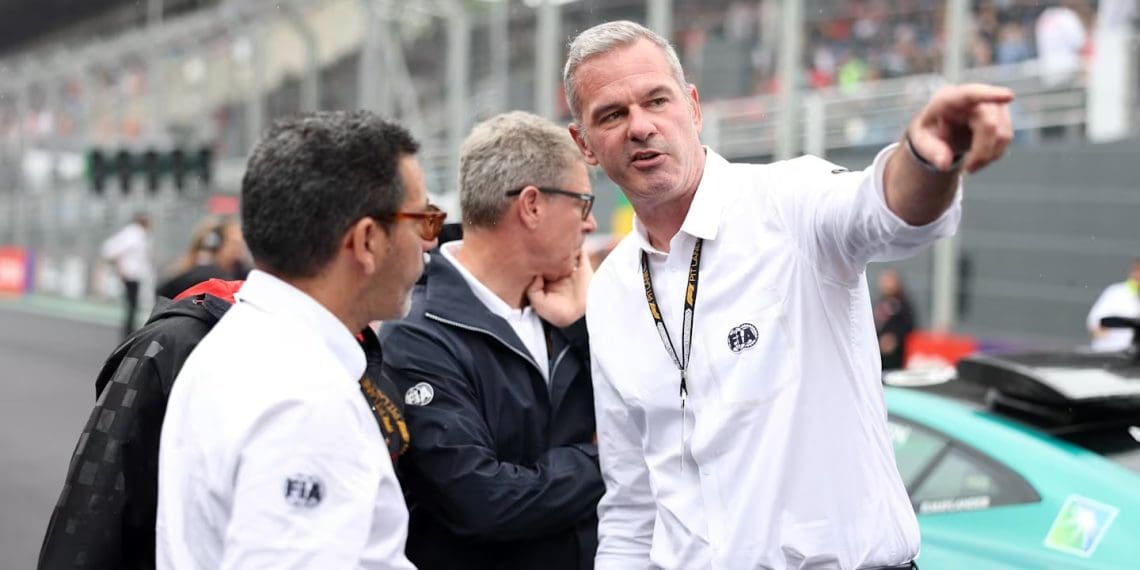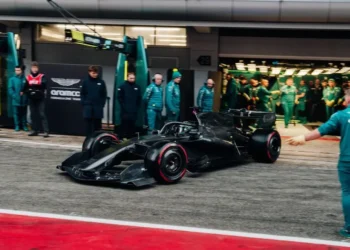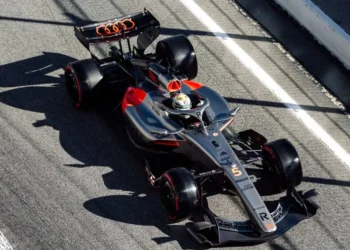Formula 1 is no stranger to drama, but the abrupt and puzzling departure of Niels Wittich as F1 Race Director just three races before the 2024 season’s conclusion has sent shockwaves through the sport. Stepping into the role is Rui Marques, a seasoned official from F2 and F3, now thrust into the highest-pressure situation of motorsport’s pinnacle.
With championships still undecided and the spotlight firmly fixed on Las Vegas, Qatar, and Abu Dhabi, Marques faces an unenviable task: managing F1’s labyrinthine rulebook, intense team rivalries, and relentless public scrutiny in one of the sport’s most complex roles.
“Race Director: F1’s Most Thankless Job”
The role of an F1 Race Director has never been for the faint-hearted. From managing intricate regulations to fielding pressure from teams and drivers, it’s a position where even doing the right thing often garners little acknowledgment.
Jeroen Bleekemolen, a former racer, summed up the challenges:
“The rules in Formula 1 are incredibly complicated. Team managers have 20-plus years of experience; they are absolute experts. A new race director has to not only learn the rules but also handle public and team pressure that no other series can replicate.”
Bleekemolen added that Marques’ experience in junior series like F2 and F3, while impressive, pales in comparison to the pressures of Formula 1:
“In F1, if you get it wrong, you’re the scapegoat for the entire sport. It’s the worst possible time to make a change.”
“Memories of Abu Dhabi 2021 Loom Large”
The sudden shift in leadership with three races to go has reignited memories of the 2021 Abu Dhabi Grand Prix, where former race director Michael Masi’s controversial decisions overshadowed the championship battle between Lewis Hamilton and Max Verstappen.
Masi’s handling of that chaotic finale highlighted the vulnerability of the race director role, especially when under immense pressure from team sporting directors like Red Bull’s Jonathan Wheatley and Mercedes’ Ron Meadows. Their contrasting communication styles played a significant part in the fateful moments that decided the championship.
Wheatley, known for his smooth and persuasive approach, was able to subtly influence Masi, suggesting mid-race:
“Then we’ve got a motor race.”
Masi’s subsequent decisions mirrored this sentiment, ultimately leading to a title-deciding controversy that reverberates in F1 to this day.
“The Challenge Ahead for Marques”
Rui Marques now inherits not only the pressure of upholding fair racing but also the intense scrutiny of fans, media, and teams who remember how a single decision can define—or derail—a season. With the constructors’ championship still on the line and the drivers’ title technically unresolved, his decisions over the next three races could shape the narrative of the entire season.
Moreover, the dynamics between teams and race officials remain fraught. The influence wielded by team sporting directors—often with decades of experience—over a relatively new race director could become a critical factor, particularly in high-stakes moments.
“Timing Under Fire”
The decision to replace Wittich so late in the season has drawn criticism from across the paddock, with many questioning the FIA’s motives. Some suggest it reflects a reactionary response to internal issues rather than a calculated move for the future. Others worry about the precedent it sets for disrupting consistency in the sport’s governance.
One insider commented:
“You can’t really argue that it’s three races to get used to it before next year. It feels like a snap reaction to something going wrong.”
“The Weight of F1 History”
From the legacy of Charlie Whiting, who embodied the authority and respect the role demands, to the turbulence of the Masi era, the F1 Race Director position has evolved into a lightning rod for controversy. Marques steps into a role where every decision is scrutinized, every error magnified, and every success expected.
The stakes couldn’t be higher, but as the F1 circus heads to Las Vegas, Qatar, and Abu Dhabi, Marques has an opportunity to navigate the complexities of the sport and prove himself as a leader capable of managing the chaos that defines Formula 1.










